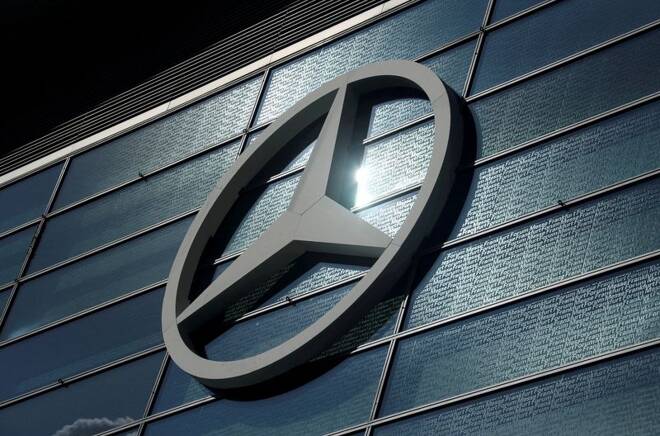Advertisement
Advertisement
Mercedes aims to fuel road to electric luxury with ‘desire’
By:
BERLIN (Reuters) - Mercedes-Benz raised its margin target in favourable circumstances to 14% by 2025 from a previous target of 10% or higher, the company said on Thursday, as it reorients its strategy towards higher-margin luxury vehicles.
BERLIN (Reuters) -Mercedes-Benz outlined a new strategy fuelled by “creating desire” through scarcity at a strategy day on the French Cote d’Azur, where it showcased its luxury models to analysts, investors and selected customers.
The German carmaker will dedicate 75% of its investments to top-end vehicles and its highest-selling segment of “core luxury” C-Class and E-Class models, it said on Thursday, while cutting the number of entry-level models.
Chief Executive Ola Kaellenius said the semiconductor shortage which has hit the industry over the last two years had allowed Mercedes-Benz to test out higher prices on customers, which it will maintain even when the shortage eases.
“At some point restrictions (in semiconductor supply) will be lifted, but we will stick with the discipline,” he said.
Mercedes-Benz has said it aims to sell exclusively electric vehicles in 2030 where market conditions allow. The volume of EVs sold will accelerate in the second half of the decade, Kaellenius said, when more models have been rolled out.
“We want to put ourselves in a position where we can serve all our markets electrically. If it’s 2030 plus ‘x’… it’s certainly not bigger than ‘5’,” Kaellenius said.
Earlier, Mercedes-Benz raised its margin target to 14% by 2025, from 10% or higher, assuming favourable conditions.
It projected a 60% rise in the sales share of its top-end models from 2019 levels to 17-18% by 2026, with the Chinese market offering the highest growth potential.
Despite hitting a 16.4% margin in its cars division in the first quarter of 2022, the margin target for 2025 was ambitious given the carmaker needed to finance its electrification strategy, chief financial officer Harald Wilhelm said.
“We need to be realistic about the cost of the transition to battery-electric vehicles,” Wilhelm said.
(Reporting by Victoria Waldersee, Editing by Miranda Murray, Rachel More and Alexander Smith)
About the Author
Reuterscontributor
Reuters, the news and media division of Thomson Reuters, is the world’s largest international multimedia news provider reaching more than one billion people every day. Reuters provides trusted business, financial, national, and international news to professionals via Thomson Reuters desktops, the world's media organizations, and directly to consumers at Reuters.com and via Reuters TV. Learn more about Thomson Reuters products:
Did you find this article useful?
Latest news and analysis
Advertisement
